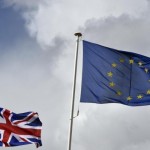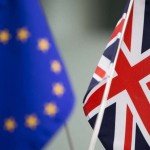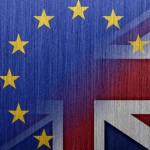Brexit – What Does It Mean For Taxpayers?

June 23rd, 2016, whether for good or for ill, will go down in history as the day on which the European Union became less united, setting in train an as-yet-uncertain, although widely speculated upon, sequence of events.
The referendum campaign was bitterly fought by both “Brexiteers” and “Bremainers,” and the results, as they came in throughout the night, were closer than perhaps either side could have imagined, with 51.9 percent of those who voted opting to leave the European Union, and 48.1 percent voting to remain. Overall voter turnout, at 72.2 percent, was the highest in recent memory.
Prime Minister David Cameron’s announcement in the wake of the referendum result that he would be resigning before the next Conservative Party conference in October 2016 was not entirely unexpected, given his stated support for the remain campaign, but has fueled further uncertainty as to the next steps for the UK.
Ahead of the referendum, Cameron had stated that, in the event of a Brexit vote, he would be required to immediately invoke the rules contained in Article 50 of the Lisbon Treaty to put into motion a two-year period that upon its expiry will see the UK decoupled from the European Union. Until then, multinationals doing business in the UK will continue to operate under current arrangements.
These two years, and any time before that, will allow the UK to begin negotiations on whether it may remain a part of the Single Market and the conditions that would be attached, as well as the other various issues.
If, by the end of the two years, agreement has not been reached to the mutual satisfaction of both the UK Government and the remaining 27-member European bloc, there are likely to be significant ramifications for the UK, in terms of taxation and the wider economy.
Continued participation in the Single Market will involve the payment of a fee to the Union, and the UK would be required to adhere to the same EU Single Market rules and adopt EU decisions as before. Under this scenario, not much would change from a tax perspective insofar as trade with the EU goes.
Failure to secure participation in the Single Market would mean that UK businesses will face new tariff and non-tariff barriers when doing business in the EU, and vice versa. In addition, after the UK ceases to be a member, the UK’s participation in EU trade deals would cease. This will mean that UK businesses will face new barriers – both tax and non-tax – to non-EU markets, until new deals are negotiated, with basic market access terms at WTO baselines. Additionally, the UK will no longer have to comply with the Union Customs Code framework, which is being phased in from now to 2020.
With regard to value-added tax (VAT), the post-EU picture is a little clearer. Following a UK exit from the Union, the UK will be free to set its own value-added tax rates, potentially leading to broad changes in this area. In reviewing UK rules, businesses will be hopeful that compliance requirements for UK-based companies will continue to be broadly in line with those currently in place, to ease the burden of trading with the EU. However other changes may be necessary as UK goods and services may no longer be treated as intra-community supplies or acquisitions.
In terms of international taxation, the UK would be free to take its own position on the OECD’s BEPS project, although it would still be accountable to the international community. Although this would mean that the UK would no longer be obliged to transpose the EU Anti-Avoidance Directive into UK law, given the UK’s strong stance in the area, the adoption of broadly equivalent rules is thought likely.
In terms of international taxation, the UK would be free to take its own position on the OECD’s BEPS project, independent of the Directives issued by the European Commission (EC), although it would still be accountable to the international community. This means that the UK would no longer be obliged to transpose the new EU Anti-Avoidance Directive into law. The UK, though, has already taken positions on many of the BEPS Actions, including releasing regulations on country-by-country reporting, prior to action by the EC.
In the wake of his resignation announcement, it has been widely reported that Mr Cameron intends to leave activation of Article 50 to his successor. However, in an official statement, Donald Tusk, Martin Schulz, and Mark Rutte, respectively the heads of the European Council, the European Parliament, and the holder of the rotating presidency of the EU Council, together with European Commission President, Jean-Claude Juncker, urged the British Government to begin the process as soon as possible, stating that:
“In a free and democratic process, the British people have expressed their wish to leave the European Union. We regret this decision but respect it.”
“This is an unprecedented situation but we are united in our response. We will stand strong and uphold the EU’s core values of promoting peace and the well-being of its peoples. The Union of 27 Member States will continue. The Union is the framework of our common political future. We are bound together by history, geography and common interests and will develop our cooperation on this basis. Together we will address our common challenges to generate growth, increase prosperity and ensure a safe and secure environment for our citizens. The institutions will play their full role in this endeavor.”
“We now expect the United Kingdom government to give effect to this decision of the British people as soon as possible, however painful that process may be. Any delay would unnecessarily prolong uncertainty. We have rules to deal with this in an orderly way. Article 50 of the Treaty on European Union sets out the procedure to be followed if a Member State decides to leave the European Union. We stand ready to launch negotiations swiftly with the United Kingdom regarding the terms and conditions of its withdrawal from the European Union. Until this process of negotiations is over, the United Kingdom remains a member of the European Union, with all the rights and obligations that derive from this. According to the Treaties which the United Kingdom has ratified, EU law continues to apply to the full to and in the United Kingdom until it is no longer a Member.”
The officials sought to sweeten the pill somewhat, concluding that: “As regards the United Kingdom, we hope to have it as a close partner of the European Union in the future. We expect the United Kingdom to formulate its proposals in this respect. Any agreement, which will be concluded with the United Kingdom as a third country, will have to reflect the interests of both sides and be balanced in terms of rights and obligations.”
As can be seen, then, at the time of writing, the future shape of both the United Kingdom – with speculation that the Brexit may spark a second independence referendum in Scotland, where the populace voted overwhelmingly to remain – and the European Union remain uncertain, with the winds of change blowing strongly across the English Channel.
Source: Tax News





























